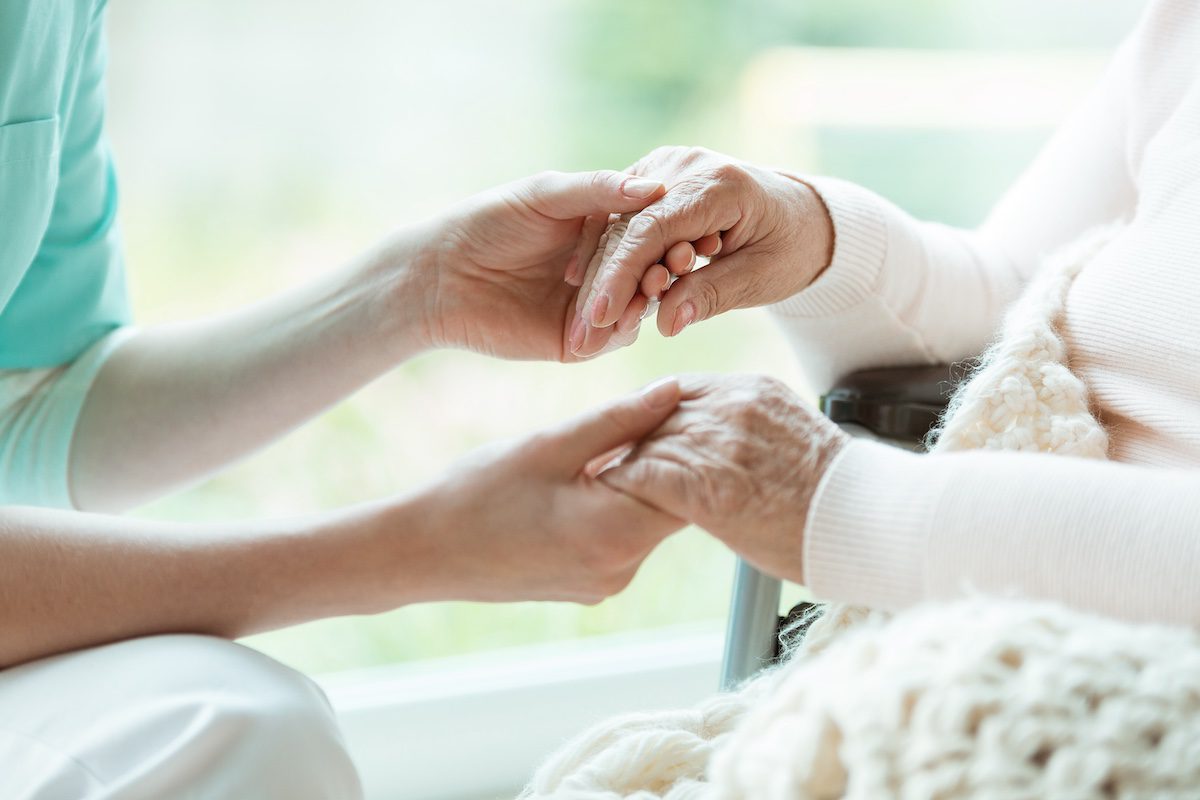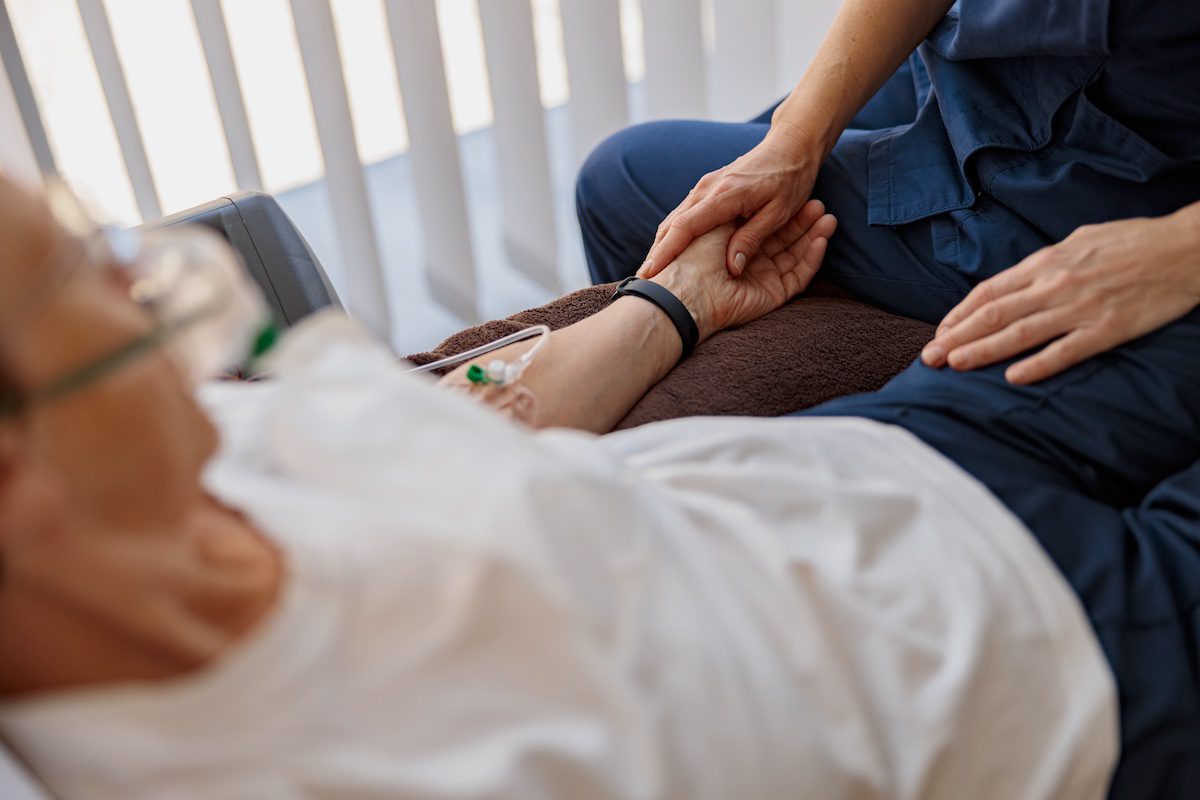In a hospice or hospital setting, a chaplain is often seen as a religious figure who offers spiritual support and guidance to patients and their families. However, not all patients are religious, and some may even identify as atheists or agnostics.
In these cases, many may wonder how a chaplain can help a patient who is non-religious. The truth is that chaplains are trained to provide support and comfort to all patients, regardless of their religious beliefs or background.
Here are some ways in which a chaplain can assist non-religious patients:
1. Emotional Support
Chaplains are trained to be excellent listeners and to provide emotional support to patients who are going through a difficult time. They can offer a compassionate ear to those who may feel overwhelmed, anxious, or sad.
Non-religious patients may not want to talk about their spirituality, but they can still benefit from the emotional support that a chaplain can provide.
2. Life Review
One of the roles of a chaplain is to help patients make sense of their life experiences. For non-religious patients, this can involve helping them reflect on their past, their relationships, and their accomplishments.
Chaplains can help patients process their emotions and come to terms with their situation.
3. Coping Strategies
Chaplains can provide practical advice and coping strategies to help patients manage their stress and anxiety.
For non-religious patients, this may involve suggestions for mindfulness, relaxation techniques, or other self-care practices. Chaplains can help patients find meaning and purpose in their lives, regardless of their religious beliefs.
4. End-of-Life Care
For patients who are nearing the end of their life, a chaplain can provide comfort and support to both the patient and their loved ones. Non-religious patients may have questions about death and dying that a chaplain can help answer.
Chaplains can also help patients make decisions about end-of-life care, such as palliative care or hospice.
5. Connection with the Community
Chaplains can help non-religious patients connect with community resources and support groups that can provide additional emotional support.
They can also help patients connect with other patients who are going through similar experiences. This can help non-religious patients feel less isolated and more connected to others.
Duties of a Hospice Chaplain
Hospice care is a specialized form of healthcare that focuses on providing comfort, dignity, and quality of life to patients who are nearing the end of their life.
Hospice chaplains play a crucial role in this care by offering spiritual and emotional support to both the patient and their family members. Here are some of the key duties of a hospice chaplain:
1. Spiritual and Emotional Support
One of the primary duties of a hospice chaplain is to provide spiritual and emotional support to patients and their families. They may offer prayer or meditation, or simply listen to patients and family members as they express their fears, concerns, and hopes.
Chaplains can help patients find peace and meaning as they prepare for the end of their life.
2. Counseling
Chaplains may also provide counseling services to patients and their families. This can involve helping patients cope with their illness or grief or helping family members navigate the emotions and stress associated with caregiving.
Chaplains may also assist with end-of-life planning, such as advance care directives or funeral arrangements.
3. Education and Resources
Hospice chaplains may also provide education and resources to patients and their families. This can involve helping them understand the dying process and what to expect, or providing information about grief and bereavement support services.
Chaplains can also help patients and families explore their spiritual beliefs and find resources that align with their values.
4. Advocacy
Chaplains may also act as advocates for patients and their families. They can help ensure that patients’ spiritual and emotional needs are being met, and may advocate for changes in care or support services if needed.
Chaplains can also help patients and families navigate any challenges or conflicts that arise during their hospice care.
By addressing the spiritual and emotional needs of patients and families, hospice chaplains help ensure that hospice care is as comfortable and meaningful as possible.
Finding Biblical Hope In Hospice Care
Hospice care can be a difficult time for patients and their families as they navigate the end-of-life process. It can be a time of uncertainty, fear, and sadness. However, for those who are believers in Christ, hospice care can also be a time of finding hope in the promises of God’s Word.
Here are some ways to find Biblical hope in hospice care:
1. God’s Love and Presence
In the midst of suffering and pain, it can be difficult to remember that God is with us. But as believers, we can take comfort in knowing that God’s love and presence never leave us.
As Psalm 23:4 reminds us, “Even though I walk through the darkest valley, I will fear no evil, for you are with me; your rod and your staff, they comfort me.” Knowing that God is with us and loves us can provide comfort and peace during the hospice journey.
2. The Promise of Eternal Life
As believers, we have the promise of eternal life through faith in Jesus Christ. In John 3:16, Jesus says, “For God so loved the world that he gave his one and only Son, that whoever believes in him shall not perish but have eternal life.”
This promise can bring comfort and hope to patients and their families during hospice care. They can find peace in knowing that death is not the end, but a transition to eternal life with God.
3. Strength in Weakness
During hospice care, patients may feel physically and emotionally weak. However, as believers, we can find strength in God’s Word.
In 2 Corinthians 12:9-10, Paul writes, “But he said to me, ‘My grace is sufficient for you, for my power is made perfect in weakness.’ Therefore I will boast all the more gladly about my weaknesses, so that Christ’s power may rest on me. That is why, for Christ’s sake, I delight in weaknesses, in insults, in hardships, in persecutions, in difficulties. For when I am weak, then I am strong.”
This verse reminds us that we can find strength in Christ even in our weakest moments.
Rely On Your Chaplain for Support
We are passionate about providing a wide range of support services for both our patients and their families. If you find yourself in need of spiritual or emotional support, please reach out to one of our chaplains! You are not alone during this difficult time.



